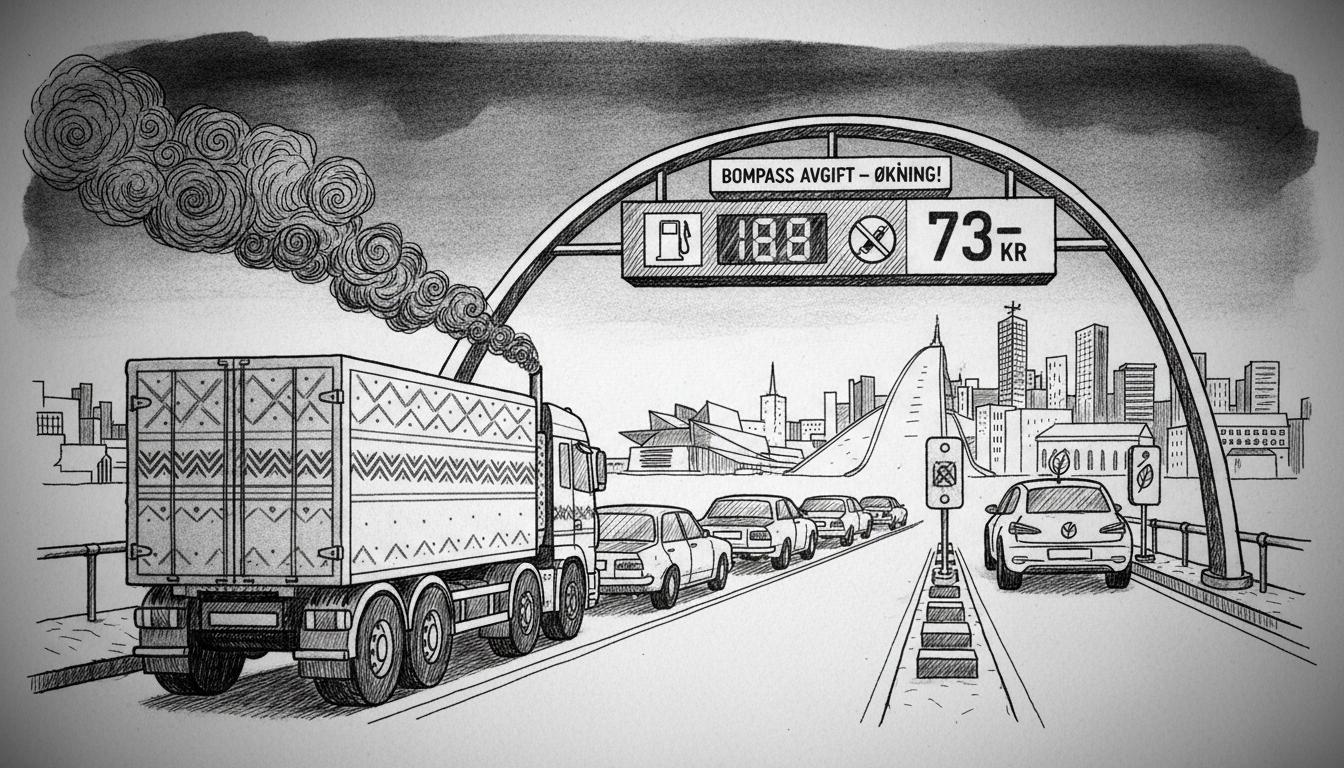Oslo introduces substantial toll fee hikes for fossil fuel vehicles starting in the new year. Heavy trucks face the most dramatic increases during rush hour periods. This policy shift reflects Norway's aggressive push toward sustainable urban transportation.
Heavy vehicles using fossil fuels will pay significantly more in Oslo's toll ring. Rush hour prices jump by up to 73 kroner per passage. The increases target vehicles over 3500 kilograms running on conventional fuels.
Euro 5 class vehicles and older models face the steepest hikes. Their rush hour tolls rise to 223 kroner, up 73 kroner from previous rates. Euro 6 class vehicles see increases of 71 kroner to 162 kroner during peak times.
Passenger cars also face moderate fee adjustments. Gasoline and hybrid vehicles pay 38 kroner outside rush hours and 47 kroner during peak times. Diesel cars face charges of 42 and 50 kroner respectively.
Zero-emission vehicles maintain their favorable position in the toll system. They pay just 21 kroner outside rush hours and 26 kroner during peak traffic. Heavy zero-emission and gas-powered vehicles continue to travel toll-free through Oslo.
The policy stems from political decisions in Oslo Package 3. A communications director confirmed the changes in an official statement. Annual toll collections currently reach approximately 5 billion kroner from motorists.
Oslo's toll system exemptions remain unchanged. Motorcycles, emergency vehicles, public transport, and cars with disabled parking permits continue unaffected. The city maintains its commitment to accessible transportation while pushing environmental goals.
This move aligns with broader Norwegian environmental policies. The country leads in electric vehicle adoption nationwide. Oslo specifically aims to reduce urban emissions through transportation pricing strategies.
International observers watch Oslo's transportation policies closely. The city serves as a testing ground for sustainable urban planning. Other European cities often look to Norwegian approaches for inspiration.
The toll increases will likely impact commercial transportation costs. Businesses operating heavy vehicles must adapt to higher operational expenses. Some may accelerate transitions to electric or alternative fuel fleets.
Residents and commuters face adjusted transportation budgets. The changes could influence vehicle purchasing decisions across the region. Norway's electric vehicle infrastructure continues expanding to support growing demand.
Urban planners note the policy's potential effects on traffic patterns. Reduced fossil fuel vehicle usage could improve inner-city air quality. The long-term environmental benefits remain a key policy objective.
Norwegian cities balance environmental goals with practical transportation needs. Oslo's approach demonstrates how pricing mechanisms can drive behavioral change. The city maintains its position at the forefront of sustainable urban development.

